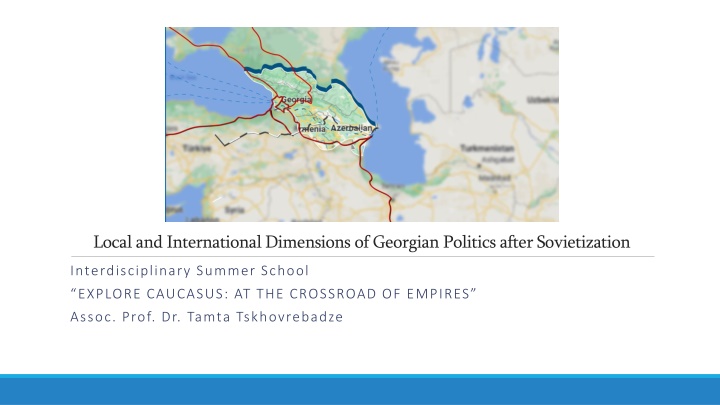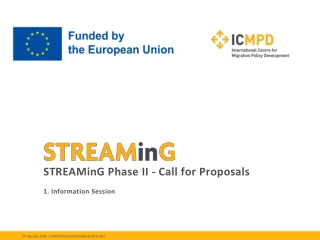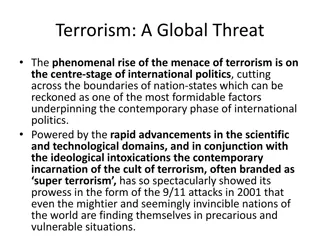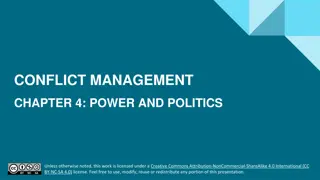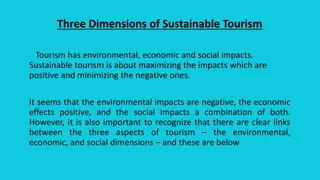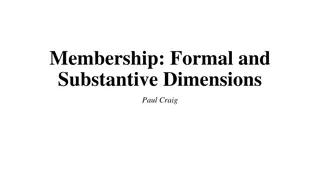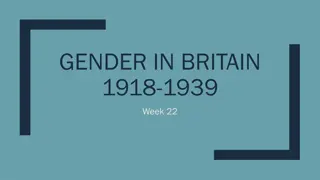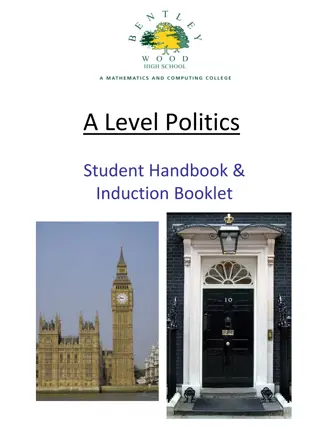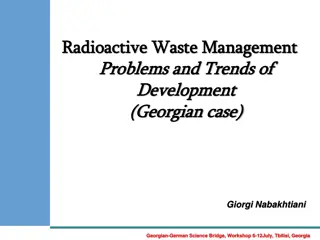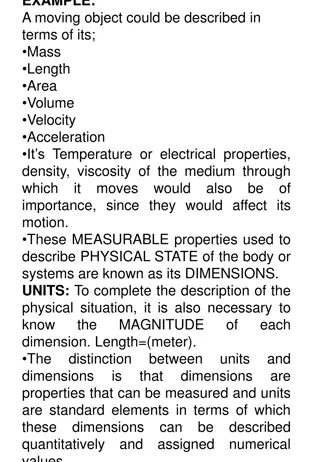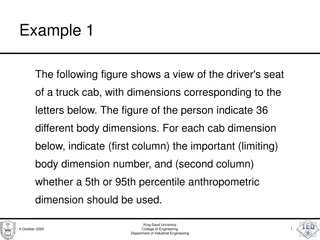Georgian Politics Post-Sovietization: Local and International Dimensions
Explore the complex political landscape of Georgia post-Sovietization with a focus on local and international influences. Delve into debates on empire-building, modernity, Soviet hegemony, and Georgian autonomy. Gain insights into the geopolitical shifts in the Caucasus in the early 20th century and the challenges faced by Georgia in the 1920s. Supported by the Shota Rustaveli National Science Foundation of Georgia, this interdisciplinary summer school offers a deep dive into the historical and contemporary dynamics shaping Georgian politics.
Download Presentation

Please find below an Image/Link to download the presentation.
The content on the website is provided AS IS for your information and personal use only. It may not be sold, licensed, or shared on other websites without obtaining consent from the author.If you encounter any issues during the download, it is possible that the publisher has removed the file from their server.
You are allowed to download the files provided on this website for personal or commercial use, subject to the condition that they are used lawfully. All files are the property of their respective owners.
The content on the website is provided AS IS for your information and personal use only. It may not be sold, licensed, or shared on other websites without obtaining consent from the author.
E N D
Presentation Transcript
Local and International Dimensions of Georgian Politics after Sovietization Interdisciplinary Summer School EXPLORE CAUCASUS: AT THE CROSSROAD OF EMPIRES Assoc. Prof. Dr. Tamta Tskhovrebadze
Empire or attempt of creating alternative modernity? Vision of Soviet anti-imperial ideology as a stalking horse for Great Russian hegemony The Great Russian chauvinism The policy of indigenisation (nativization) to integrate the nationalities into a new multi-national state by accommodating national cultural aspirations (in fact territorialized ethnicity which created internal republics and other administrative entities to be led by the respective dominant ethnicity) The deliberate acceleration of modernization and facilitated affirmative action for national self- expression was targeted on building a confidence in national elites Transcaucasia and Georgia s autonomisation debate Interdisciplinary Summer School Explore Caucasus: at the Crossroad of Empires The project is supported by Shota Rustaveli National Science Foundation of Georgia (SRNSFG) Grant #CS-II-23-067
Geopolitical situation in Caucasus in early 20 century From the beginning of 1920 the changed geopolitical reality revealed that South Caucasus was dominated by the Soviet Russia and Turkey. Western influence and presence in the region is lessened, therefore no major actions are taken by Great Britain, France, US and their allies. Sovietization started with Azerbaijan in 1920, then after Turkish-Armenian war in autumn 1920 Armenia was divided into Soviet Russian and Turkish dominated parts and in 1921 the only independent republic at that time in the South Caucasus, Georgia also shared the same unfortunate fate. Quickly turning the administrative and socio-economic structure into a communist party ruled administrative, political and socio-economic order. Interdisciplinary Summer School Explore Caucasus: at the Crossroad of Empires The project is supported by Shota Rustaveli National Science Foundation of Georgia (SRNSFG) Grant #CS-II-23-067
Reluctant political reality of Georgia in 1920s The Georgians viewed their cultural values as distinct from Russian traditions. As such, these differences were used in the 1920s as the primary objections to the Soviet occupation because it appealed to the Georgian people. At this time, the Georgian government not only had to defend again Soviet Russia, but also had to convince the population that the new government, the Democratic Republic of Georgia presented a better option than joining Soviet Russia. In addition, due to the end of WWI and the worldwide fear of Soviet Russia, Georgian authorities believed to convince the world powers to protect Georgia s independence by limiting Russia s influence on the region. Interdisciplinary Summer School Explore Caucasus: at the Crossroad of Empires The project is supported by Shota Rustaveli National Science Foundation of Georgia (SRNSFG) Grant #CS-II-23-067
Georgian cultural and national awakening was the starting point for the Georgian desire to maintain cultural independence, which occurred in the latter half of the 19th century. however, authorities believed that Georgia would contain religious autonomy. Awakening was partially born from the fear of complete integration into the Russian Empire and the loss of Georgian culture. In the 1920s, Kvinitadze wrote in his memoires, There seemed to be no salvation. But the love of the homeland and its nationality saved it [Georgia] from final destruction. Despite a noticeable attempt to infiltrate Georgian society, the dream of Georgia s political independence never died among the people . Interdisciplinary Summer School Explore Caucasus: at the Crossroad of Empires The project is supported by Shota Rustaveli National Science Foundation of Georgia (SRNSFG) Grant #CS-II-23-067
Attempts to Restore Georgias independence Plan A West s support and increased pressure on Russia The government authorities who were fled for immigration never left hope for the country to gain independence with the European countries support and gradient assistance. However, when Soviet government took power in Azerbaijan getaways to Armenia and Azerbaijan were unlocked. It also meant that parts of the major economic arteries Transcaucasian railway and Baku- Batum oil pipeline were cut. The region, including Georgia, lost its significance for the west. Interdisciplinary Summer School Explore Caucasus: at the Crossroad of Empires The project is supported by Shota Rustaveli National Science Foundation of Georgia (SRNSFG) Grant #CS-II-23-067
Attempts to Restore Georgias independence Plan A Through the westerns support and increased pressure on Russia The government authorities who were fled for immigration never left hope for the country to gain independence with the European countries support and gradient assistance. However, when Soviet government took power in Azerbaijan getaways to Armenia and Azerbaijan were unlocked. It also meant that parts of the major economic arteries Transcaucasian railway and Baku- Batum oil pipeline were cut. The region, including Georgia, lost its significance for the west. Interdisciplinary Summer School Explore Caucasus: at the Crossroad of Empires The project is supported by Shota Rustaveli National Science Foundation of Georgia (SRNSFG) Grant #CS-II-23-067
Attempts to Restore Georgias independence Plan B Independence with own efforts Soviet Occupation was followed many pre-planned and situationally raised riots locally. That was followed by the August 1924 uprising aimed at restoring Georgian independence from the Soviet Union, was led by the Georgian Independence Committee, an anti-Soviet political bloc chaired by the Georgian Social Democratic (Menshevik) party. This marked the culmination of a three-year struggle against the Bolshevik regime established in Georgia by the Soviet-Russian Red Army during military campaigns against the Democratic Republic of Georgia in early 1921. The Red Army and the Cheka army, under orders from the Georgian Bolsheviks, Joseph Stalin and Sergo Ordzhonikidze, quelled the riots and fomented a massive wave of repression that killed thousands of Georgians. The August Uprising was one of the last major uprisings against the early Soviet government, and its defeat marked the decisive establishment of Soviet rule in Georgia. Interdisciplinary Summer School Explore Caucasus: at the Crossroad of Empires The project is supported by Shota Rustaveli National Science Foundation of Georgia (SRNSFG) Grant #CS-II-23-067
Attempts to Restore Georgias independence Plan C Prospects of weakening Soviet Union in the WW2 and pragmatic view of the immigrant authorities The Soviet government was under threat to hardly maintain power during first years of the WW2, 1941- 1942. Georgian immigrants leaving abroad and remaining political elites did not have much wager towards Germany, however, some of the elite groups still tried to flip the coin and sent a decree to German leadership to consider recognition of Georgian independence and requested patronage. Interdisciplinary Summer School Explore Caucasus: at the Crossroad of Empires The project is supported by Shota Rustaveli National Science Foundation of Georgia (SRNSFG) Grant #CS-II-23-067
Attempts to Restore Georgias independence Plan D Fragility of the Soviet Regime Georgian elites realized the struggle for independence or military uprisings were a real perspective only when the soviet army would have withdrew from Georgia (in case of increased internal instability or global military threats). After the victory in WW2 the plan was hardly imagined to be realized, but after decades it was realized that disproportionate military expenses decomposed the Union and deteriorated domestic policies resulted in full collapse. Interdisciplinary Summer School Explore Caucasus: at the Crossroad of Empires The project is supported by Shota Rustaveli National Science Foundation of Georgia (SRNSFG) Grant #CS-II-23-067
Reassessing Local and International Dimensions of Georgian Politics After a Century 100 years ago Georgia made a strategic decision to choose the Europe for Georgian independence and statehood. The possibility not to fail to make the best of the opportunities which, together with challenges, are periodically given by history.After 70 years of captivity, Georgia was given yet another chance to restore its independence and build a free state. 1918 Independence Act, which had brought to life the short-lived First Republic, or Georgian Democratic Republic is still remarkable in the post-Soviet period. During a century Georgia had experienced many pivotal moments that persuaded most Georgians to break with the Soviet Union. Symbolically, the Act on the Restoration of Georgia s State Independence was signed two years after the April 9. In Georgians collective memory, independence can be said to have been achieved through sacrifice, and the date of achieving that independence April 9 coincides with the date of mourning for the dead. Interdisciplinary Summer School Explore Caucasus: at the Crossroad of Empires The project is supported by Shota Rustaveli National Science Foundation of Georgia (SRNSFG) Grant #CS-II-23-067
